Research
March 27, 2023
NIH, NSF Fund UAMS Study of Rapid Genomic Testing to Aid Treatment of Dangerous Antibiotic-Resistant Infections
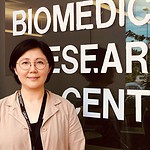
LITTLE ROCK — Two national grants are helping researchers at the University of Arkansas for Medical Sciences (UAMS) toward their goal of providing rapid, life-saving genomic information to doctors treating the most dangerous antibiotic-resistant infections. The study began with a $50,000 pilot award from the UAMS Translational Research Institute, which was used to gather data…
March 13, 2023
UAMS’ Lawrence Cornett, Ph.D., Receives National Award for NIH IDeA Contributions
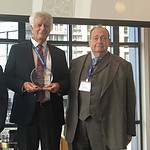
LITTLE ROCK — The University of Arkansas for Medical Sciences’ (UAMS) Lawrence Cornett, Ph.D., has received the W. Fred Taylor Ph.D. Award in recognition of his significant contributions to the National Institutes of Health (NIH) Institutional Development Award (IDeA) program. The award presentation took place Feb. 28 at the Established Program to Stimulate Competitive Research…
February 27, 2023
UAMS Researchers Produce Journal’s Top Cited, Most Downloaded Article on COVID-19 Vaccine Hesitancy

LITTLE ROCK — A University of Arkansas for Medical Sciences (UAMS) research team’s article on COVID-19 vaccine hesitancy has been recognized by the publisher of Clinical and Translational Science for having its top-cited article in 2022 and the most downloaded paper since its publication in 2021. The article, “COVID-19 Vaccine Hesitancy: Race/Ethnicity, Trust and Fear,”…
December 22, 2022
UAMS Garners Multiple Honors in 2022 while Fulfilling Missions

Two years of battling the pandemic and its effects resulted in a 2022 that was the closest yet to a pre-COVID normal at UAMS. The university never faltered in its devotion to its missions. UAMS seized the opportunity the year brought to renew its focus on them in a way that earned it praise and…
December 19, 2022
U.S. Defense Department Awards UAMS Cancer Researcher $760,000 to Study Aggressive Type of Lymphoma

LITTLE ROCK — Samantha Kendrick, Ph.D., assistant professor in the Department of Biochemistry and Molecular Biology at the University of Arkansas for Medical Sciences (UAMS), has received a $760,000 grant from the U.S. Department of Defense to study a fast-growing type of non-Hodgkin lymphoma common among veterans and military personnel.
December 14, 2022
UAMS Researchers See 14.5% Increase in Grant Funding for FY2022

LITTLE ROCK — The University of Arkansas for Medical Sciences (UAMS) and its affiliate research institutions saw research funding grow by 14.5% this past year, with $203.1 million in grants by June 30, 2022, the end of the state’s fiscal year. It is the third consecutive year with double-digit increases in research funding that comes…
December 2, 2022
Three Grants Aiding UAMS-Based Program’s Efforts to Expand Research in Arkansas
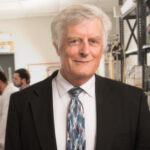
A University of Arkansas for Medical Sciences (UAMS)-based program will use $614,117 from three recent grants to expand biomedical research in Arkansas. The three grants are administrative supplements to the Arkansas IDeA Network for Biomedical Research Excellence (INBRE) Program, awarded by the National Institute of General Medical Sciences at the National Institutes of Health (NIH)….
November 14, 2022
UAMS Using $2.4 Million NIH Grant to Study Bacterium that Causes Tick-borne Relapsing Fever
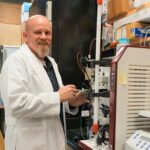
LITTLE ROCK — Researchers at the University of Arkansas for Medical Sciences (UAMS) will use a new federal grant to study genetic systems of the bacterium that causes tick-borne relapsing fever to better understand their molecular functions and reveal possible drug targets. UAMS’ Jon Blevins, Ph.D., a professor in the College of Medicine Department of…
October 25, 2022
NIH Awards UAMS $7.9 Million to Create More Space for Pandemic Response, Infectious Disease Research
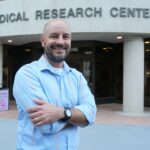
LITTLE ROCK — The University of Arkansas for Medical Sciences (UAMS) will use a $7.9 million National Institutes of Health (NIH) grant to expand its infectious disease research capacity and establish a Pandemic Response and Public Health Laboratory by renovating existing research space. The renovation will create about 9,900 square feet of additional research space…
October 13, 2022
NIH Funds UAMS Effort to Close Patient Outcome Gaps Across U.S. Level 1 and 2 Trauma Centers
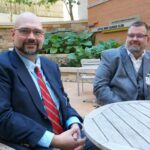
LITTLE ROCK — University of Arkansas for Medical Sciences (UAMS) researchers are hoping to help close wide gaps in trauma patient outcomes across the United States by harnessing new data to help trauma center leaders improve outcomes. Led by Mathias Brochhausen, Ph.D., and Kevin Sexton, M.D., the researchers will test which organizational features affect patient…
Previous page Next page